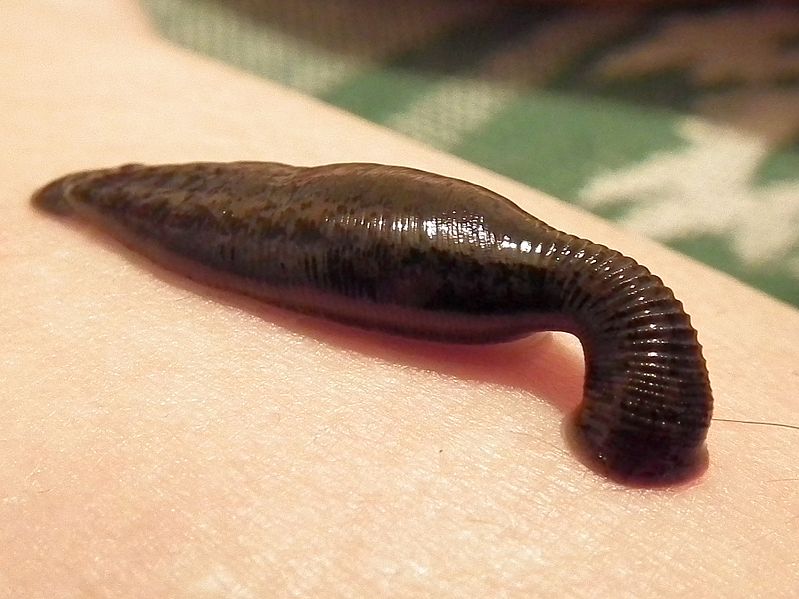
An article claiming to uproot the evolutionary tree of leeches has received an expression of concern after a reader notified the journal about potential problems with the data.
The article, “Phylogenomic analysis of a putative missing link sparks reinterpretation of leech evolution,” appeared online in Genome Biology and Evolution, an Oxford University Press title, on June 19 of this year. According to the authors — an international team that includes researchers at the National Museum of Natural History, the North Carolina Museum of Natural Sciences, Florida State University and University of Gothenburg in Sweden — their results:
support a deep divergence between predominantly marine and freshwater lineages, while not supporting the reciprocal monophyly of jawed and proboscis-bearing leeches. To sum up, our phylogenomic resolution of early-diverging leeches provides a necessary foundation for illuminating the evolution of host–symbiont associations and key adaptations that have allowed leeches to colonize a wide diversity of habitats worldwide.
In other words, what you once thought about the evolutionary origins of leeches, well, that just ain’t so.
Or is it? The expression of concern taps the brakes on the paper’s claims:
The Editors have been alerted by a reader about concerns on the data underlying the above paper. The issues raised include that the analyses are confounded by both contamination and assembly errors. The Editors have contacted the authors, who have requested time to address specific concerns.
In the interim, this Expression of Concern should be taken to indicate that the data presented in the article named above may not be reliable.
Laura Katz, editor of GBE, told us that the reader
raised concerns about the nature of the data, specifically that the high-throughput sequencing data from the leeches was highly contaminated by fish (i.e. host) DNA.
I then contacted the authors, who had already been in communication with the reader. My understanding is that the team of authors is in the process of addressing the concerns raised, both in terms of the problem of contamination and the implications for their overall findings.
Bronwyn Williams, the research curator for non-molluscan invertebrates at the North Carolina Museum of Natural Sciences in Raleigh, and the last author on the paper, told us that:
The reader was concerned that some of the data in our analyses included vertebrate host contaminant sequences. I do not know exactly what caught the reader’s eye, but it is my understanding that subsequent to our paper being published, the reader began scrutinizing our data – all of which we made publicly available – at which point the concern was raised.
Williams added that:
We had several stringent lab and bioinformatic protocols in place explicitly to safeguard against host, and other, contamination of our high-throughput large-scale genomic dataset, and are working to determine at what step, if any, host sequences passed through unflagged.
Like Retraction Watch? You can make a tax-deductible contribution to support our work, follow us on Twitter, like us on Facebook, add us to your RSS reader, sign up for an email every time there’s a new post (look for the “follow” button at the lower right part of your screen), or subscribe to our daily digest. If you find a retraction that’s not in our database, you can let us know here. For comments or feedback, email us at [email protected].
The very fist sentence
“Leeches (Hirudinida) comprise a charismatic, yet often maligned group of organisms.”
I would not use the word “charismatic” in describing a leech. That should be corrected too.
How can you say ‘uncharismatic’ when there are species names like “Tyrannobdella rex”?